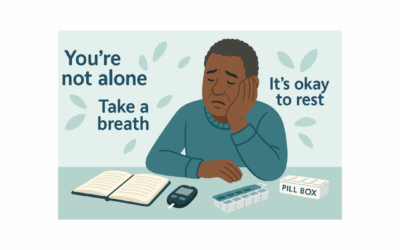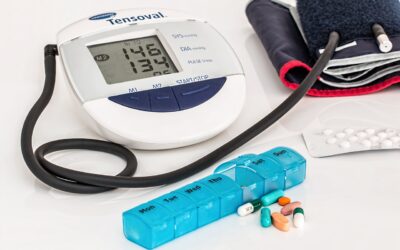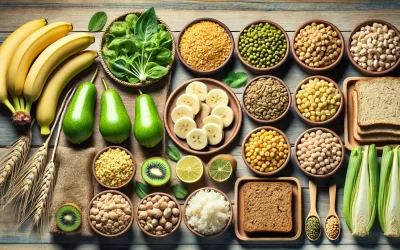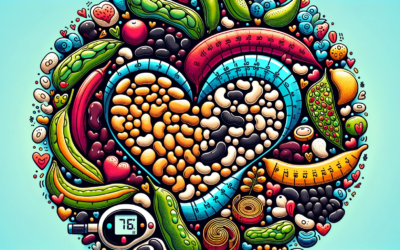Top 5 myths about diabetes
Myth 1: Eating too much sugar causes diabetes
Most people know someone with diabetes. It is important for them to monitor their blood sugar to check glucose. What they don’t know is that eating too much sugar does NOT cause diabetes.
Maintaining a balanced lifestyle of exercise and healthy eating can help people with diabetes live fulfilling and happy lives. Sugar can be consumed by people with diabetes but in very limited amounts.
Myth 2: Diabetes is contagious
Although diabetes can be hereditary, it is not contagious. You can not catch diabetes, but you can develop type 2 diabetes through poor diet and lack of exercise. Diabetes is a disease, but it can not be transmitted in any way.
Learn more about type 1 and type 2 diabetes.
Myth 3: Diabetes can’t be controlled
Managing diabetes may not always be easy, but it can be done with healthy eating and regular exercise. Don’t get it twisted, eating can still be enjoyable and delicious. A diabetic may use a food diary to keep track of how different foods make them feel mentally, physically and emotionally.
They may also be mindful of the amount and kind of carbs they consume. While sugar from carbs does not cause diabetes, it can become a problem when consumed in excess.
Control of diabetes depends on the type of diabetes. Type 2 diabetes can be controlled by lifestyle changes or medications. But type 1 diabetes can only be controlled by injecting insulin.
Myth 4: Daily activities and habits don’t matter
Keeping a good balance of physical activity and eating balanced meals are essential parts of living life to the fullest for people with diabetes.
“Along with your diet and medications, regular physical activity is an important part of managing diabetes or dealing with prediabetes. When you’re active, your cells become more sensitive to insulin so it works more effectively. And you just feel better. And look better.”
The American Diabetes Association
Myth 6: You can stop your medicine at any time, and it won’t affect you.
This can be dangerous. It is very important to continue to take diabetes medication as prescribed. Blood glucose levels may rise to dangerous levels if diabetes medications are no longer taken. Uncontrolled diabetes can lead to stroke, blindness, and kidney damage.
Have you recently been diagnosed with diabetes? Do you need someone to walk you through an easy process of managing your disease so you can live your best life?
Click HERE NOW and take your happy life back!
Don’t Wait Until January 1st …Start Now
There is an old gospel song that says, “Don’t Wait Until the Battle is Over, Shout Now…Because in the end you gonna win.” That’s my message to you today. Do not wait until January 1st to start eating healthy, exercising, joining the gym, etc. It’s better to start...
Navigating Diabetes Burnout: Reflection Prompts & Self-Compassion Statements to Heal Your Mindset
Living with diabetes, especially type 2 diabetes or prediabetes, can feel like a full-time job. Between tracking blood sugars, managing medications, planning meals, and squeezing in exercise, it’s no surprise that many people experience diabetes burnout or diabetes...
Diabetes Burnout and Distress: How to Cope and Feel in Control Again
Living With Diabetes Is More Than Just Numbers Living with type 2 diabetes or prediabetes isn’t just about tracking blood sugar levels. It’s about managing daily tasks, planning meals, remembering medications, and making lifestyle choices, all while juggling the rest...
Identifying Early Signs of Community Acquired Pneumonia (CAP) in Older Adults with Chronic Health Conditions
Take control of your health by understanding the symptoms of CAP, seeking medical attention when necessary, and communicating effectively with healthcare providers. Stay proactive and prioritize your well-being if you are Over 50 with chronic health problems.
The Connection Between Diabetes and Heart Disease: What You Need to Know
February is Heart Disease Awareness Month, and if you have prediabetes or type 2 diabetes, it’s crucial to understand how these conditions affect your heart.
Why You Should Add Resistant Starch to Your Diet: Surprising Health Benefits
Resistant starch is a type of carbohydrate that has gained significant attention in recent years due to its numerous health benefits. Unlike other starches, resistant starch is not easily digestible in the small intestine and instead ferments in the large intestine,...
Bean-tastic Benefits: 7 Super Ways Beans Help Manage Type 2 Diabetes!
National Bean Day is a fantastic opportunity to highlight the benefits of beans, especially for people with type 2 diabetes. Beans are not only delicious but also packed with nutrients that can help in managing diabetes. Here are seven benefits of beans for people...







